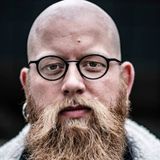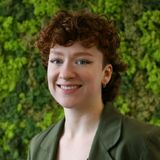In activism, we’re mostly focused on challenging that which oppresses, disrupting the status quo and provoking the powers that be. But what comes afterwards? How can we move on from an anti-capitalist city to a post-capitalist city? Not striving for a set utopia, but imagining a city in which its inhabitants are inseparably part of its creation. Ever changing, ever experimenting to counter the current collective alienation. During this night we’ll playfully imagine a just future together by discussing questions like: What would the city look like if profit-making was no longer on the foreground? How can we rethink ownership and the way work is valued? What should happen to our art and culture? How should our relationship with nature change? What about the way in which the city works together with the provinces? And our relations between the local and international? Let’s picture a post-capitalist city as an act of resistance in itself.
This session is the first programme of a three-part series, called ‘Speak to your imagination’, in which we will playfully consider how our society can be shaped differently. Do not expect a standard panel, but a conversation in which everyone can participate. The interactive part of the programme is optional. If you only want to listen, you can.
Each speaker will discuss one historical, current or imaginative case that, for them, embraces the image of the post-capitalist city.
Case 1: The Paris Commune
Mathijs van de Sande will discuss his current passion and research topic: the Paris Commune of 1871. An historical example that exemplifies the revolutionary potential of a city. During the Franco-Prussian war, a part of the Parisian population united and rebelled against harsh living conditions inflicted by the French state. These workers barricaded the city, causing the elites to flee. Paris had already been a breeding spot for anarchist en socialist ideas, who teamed up to organise themselves in women’s unions, trade unions and other political clubs. Thus, decision-making power now lay with local communities. They abolished the death penalty, conscription, child labour and cancelled or deferred debts, whilst setting up their own social provisions. This stateless and classless society lasted 72 days, after which the French state invaded Paris and seized power, killing tens of thousands. The Paris Commune is now seen as one of the founding moments of the labour movement in Europe and shows an alternative notion of what democracy means outside of capitalism.
Case 2: Takland
Kyra Koning will tell us about a current post-capitalist project called Takland. In Takland, at the former Taksteeg, the rules of the Dutch state don’t apply anymore. In Takland everything is free, from housing to a free shop on the ground floor. You give what you can and take only what you need. Through the concept of Takland, we’ll imagine consumption on a larger scale based on scarcity, not abundance. As individual ownership drives climate change, we’ll rethink collective ownership and the value of labour.
Case 3: Indigenous Philosophy
Chautuileo Tranamil will tell us about ‘cosmovision’: an indigenous philosophy about intergenerational knowledge transfer, with principles and values that can help you as a guideline in life. With cosmovision Chautuileo wants to dekolonise the mind. During this night she’ll give different examples of post-capitalism through this vision.
About the speakers:
Chautuileo Tranamil has worked on a global scale with grassroots communities, especially Indigenous people. As a Mapuche-Pewenche herself, she is committed to the well-being of Indigenous communities around the world. Also, Chautuileo is co-founder of Aralez and co-founder of Indigenous Liberation. She looks at the world through the philosophy of cosmovision, a compass with all kinds of principles and values passed down from our ancestors.
Mathijs van de Sande teaches political philosophy at the Radboud University in Nijmegen. In his book ‘Prefigurative Democracy: Protest, Social Movements and the Political Institution of Society’ (2023), Mathijs researches contemporary protest movements, in which anarcho-communists like Kropotkin are discussed in detail. Furthermore, Mathijs is currently working on a project on the Paris Commune of 1871 and the impact of ‘the Commune’ on radical philosophy in the 1960s. It’s been the example for many anti-capitalist urban movements, even to this day.
As part of the fashion action collective, Kyra Koning co-organises a free-shop near the Kalverstraat that explores anti-capitalist fashion systems through direct action by reusing clothing. Additionally, she focuses on the energy transition towards fossil fuel free and just heating systems in her work as an urban researcher.









